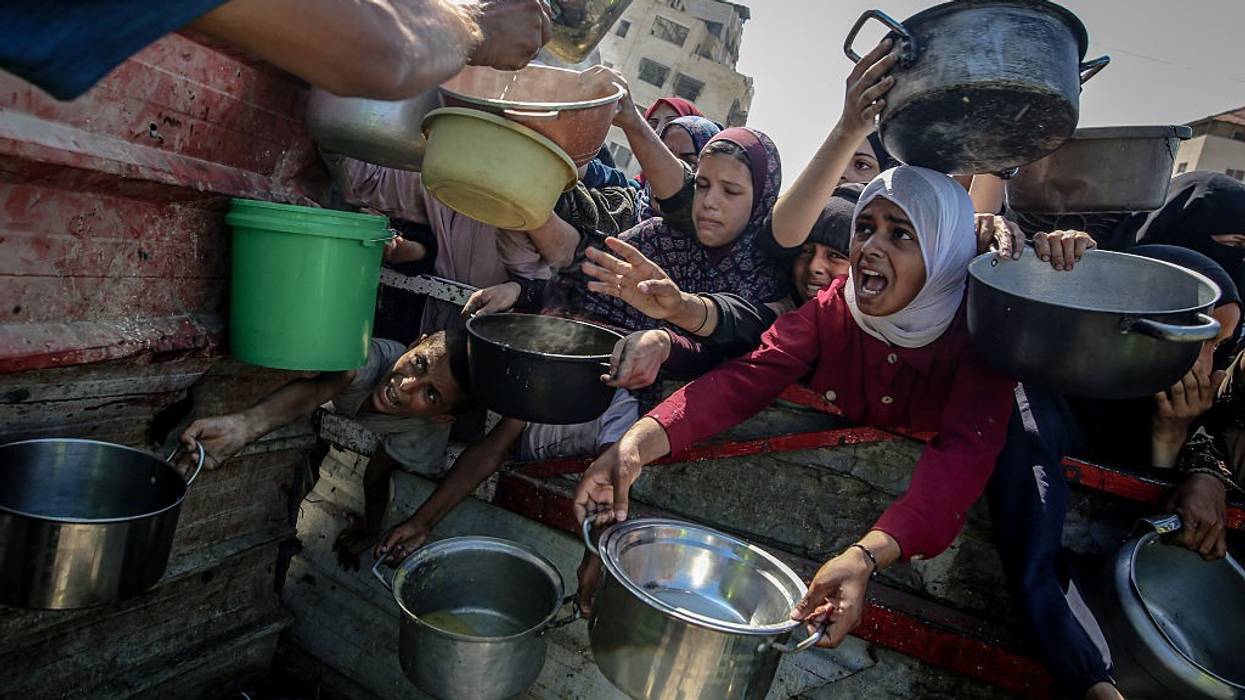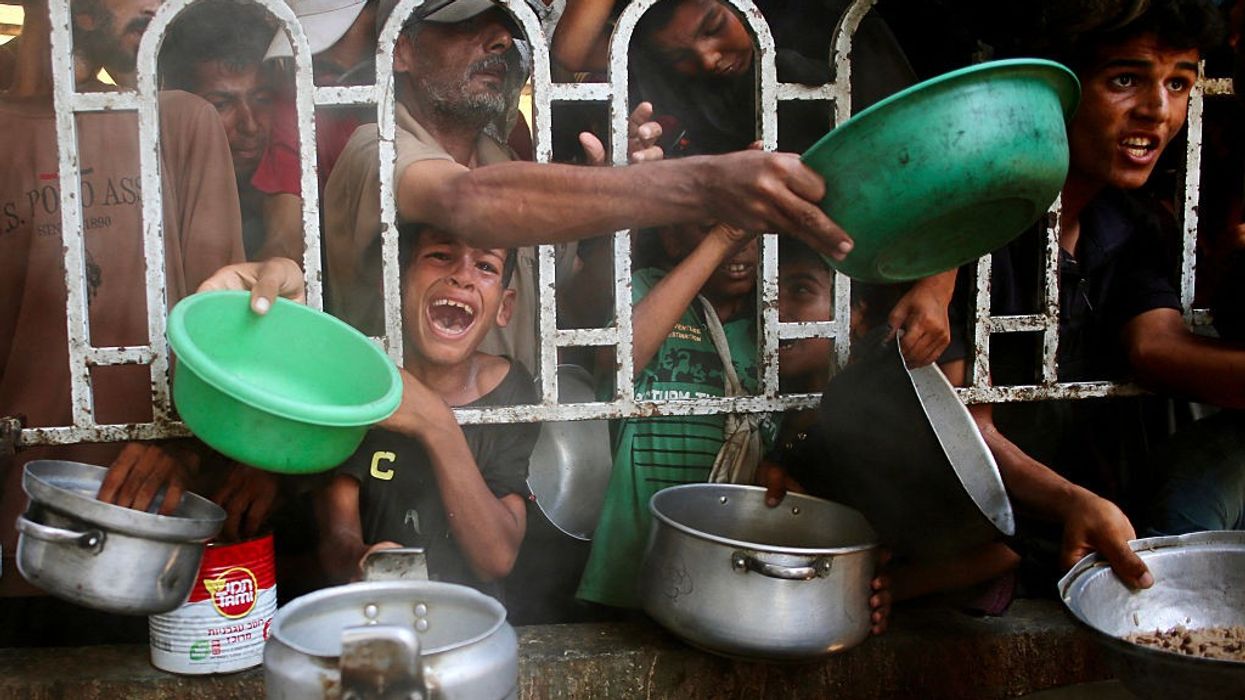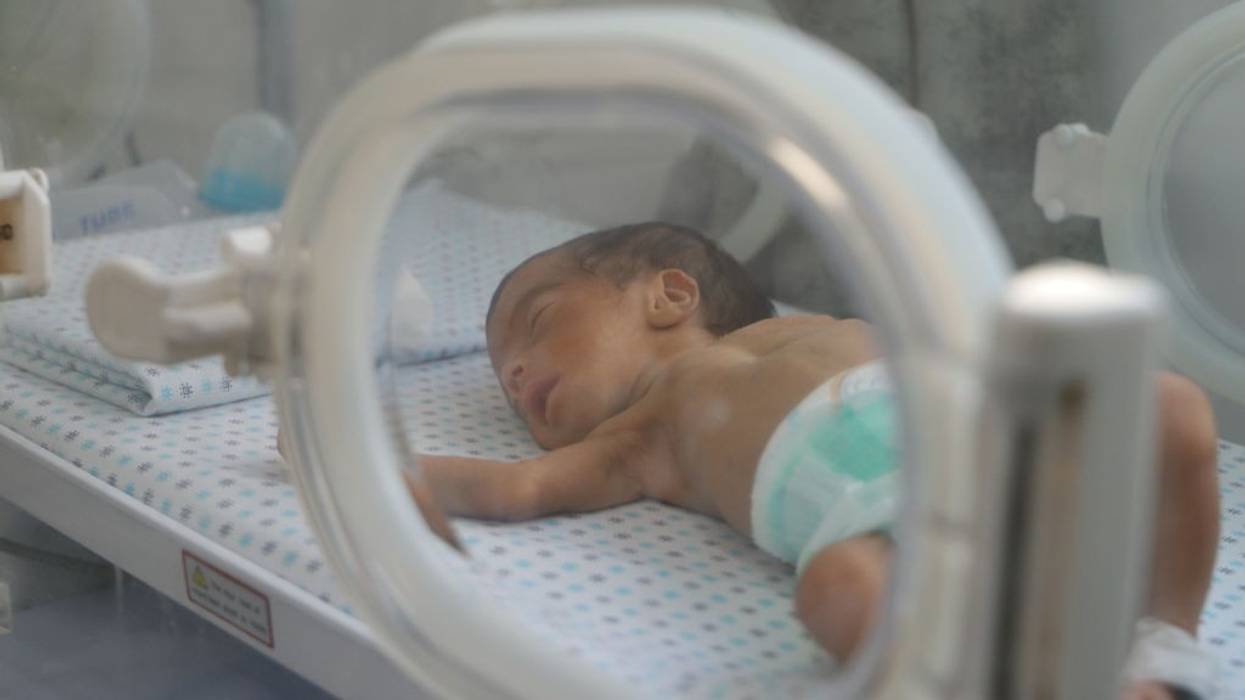Gaza Children Without 'Strength to Speak or Even Cry,' Says Aid Group Chief
"When there is not enough food, children become acutely malnourished, and then they die slowly and painfully," the CEO of Save the Children told a United Nations Security Council meeting this week.
Inger Ashing, the CEO of Save the Children, delivered an urgent plea for action to end the Israeli-created humanitarian catastrophe in Gaza, which she described in graphic terms.
Ashing told a United Nations Security Council meeting on Wednesday that there can be no doubt that Gaza is facing a full-blown famine that will result in mass starvation unless the international community steps in to end it.
"When there is not enough food, children become acutely malnourished, and then they die slowly and painfully," she said. "This, in simple terms, is what famine is."
Ashing then described how Palestinian children's bodies are eating their own muscles and organs just to stay alive amid systemic hunger imposed by Israel's military blockade.
"Children do not have the strength to speak or even cry out in agony," she said. "They lie there, emaciated, quite literally wasting away."
Cindy McCain, the executive director of the United Nations World Food Program, put out a video statement Thursday morning in which she said that Gaza was "at a breaking point" due to mass hunger.
"Half a million people here in Gaza are starving, and many more are on the edge," she said. "Famine is expected in the coming weeks if food doesn't reach the thousands of starving families here fast enough. The desperation is overwhelming."
McCain emphasized that the World Food Programme can reach these starving civilians and save lives, but added that it first needed "safe routes and sustained access" to Gaza to make it happen.
"We must deliver at the scale this crisis demands," she said.
Ashing and McCain's pleas for action came less than a week after the United Nations-backed Integrated Food Security Phase Classification Initiative (IPC) declared a famine in Gaza that it warned was projected to get even worse in the coming weeks.
"Between mid-August and the end of September 2025, conditions are expected to further worsen with famine projected to expand to Deir al-Balah and Khan Younis," the IPC stated. "Nearly a third of the population (641,000 people) are expected to face catastrophic conditions (IPC Phase 5), while those in emergency (IPC Phase 4) will likely rise to 1.14 million (58%). Acute malnutrition is projected to continue worsening rapidly."
The Gaza Health Ministry has estimated that 317 people in Gaza, including 121 children, have so far died from severe hunger as a result of the Israeli blockade.



